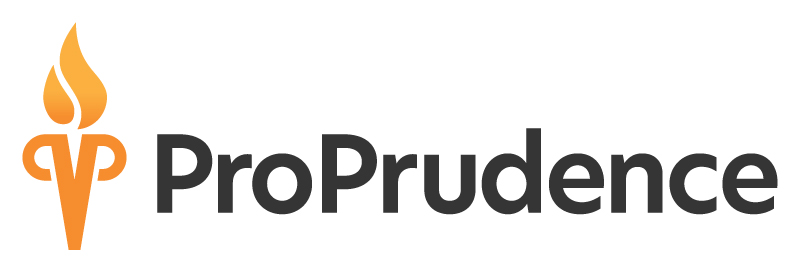Access to reproductive care is as complicated as ever. We are here to connect you with resources that can help. More access, more answers, more meeting you where your needs exist. To connect with a provider as quickly as possible please click Get Started on our home page. Read further for more information on the very complicated world that exists after the Supreme Courts’ decision in Dobbs v. Jackson Women’s Health Organization.
In the next sections we will look at the options available to those seeking reproductive care on their own terms. At ProPrudence we believe in every individual’s right to self-determination. Put differently, it’s your body and your choice. We encourage you to connect with a reproductive care expert as soon as possible if you haven’t already done so.
Self-Managed Abortion
Abortions won’t stop just because a particular jurisdiction passes highly restrictive laws limiting access or outlawing them altogether. Nationwide abortions are still legal. Dobbs has created so much legal uncertainty, it’s difficult for experts to keep track of new developments and new laws. For a person that simply needs help it might feel impossible to understand this complicated legal landscape. For more information about the laws in your state please visit the Guttmacher Institute’s guide here https://states.guttmacher.org/policies/
For reasonable people, self-managed abortions do not evoke scary imagery of poorly done procedures performed by some unlicensed person. In 2022, self-managed abortions are done with the help of FDA approved medications, mifepristone and misoprostol. Your access to these medications will depend on which state you live in. Please use this resource to learn more about the rules in your state https://www.guttmacher.org/state-policy/explore/medication-abortion
It is generally accepted that medication assisted, self-managed abortions are safe up to the 10th week of pregnancy. 19 states require the clinician providing a medication abortion to be physically present when the medication is administered, thereby prohibiting the use of telemedicine to prescribe medication for abortion. Please use the link ending in medication-abortion to learn more.
For patients that live in the 31 states that allow telemedicine to prescribe mifepristone and/or misoprostol, there are some great resources available.
We encourage you to explore both sites. All patient’s circumstances are unique. Context matters, explore and investigate the resources available to you so you can find the best fit for you.
Both AOD and Plan C, as well as The Guttmacher Institute, provide very thorough information about some of the legal complexities surrounding telabortion. Some factors to consider include, where the provider and patient are located during the video visit, where the medication is received in the mail, where the medication is taken, and where the patient passes the pregnancy tissue.
Abortion Funds
Circumstances exist where you may not be able to self-manage via medication assisted abortion. For a variety of reasons, you may feel forced to look outside of your state for care. There are many many people now living within abortion deserts. “Abortion Deserts” are cities with populations of over 100,000 where people must travel more than 100 miles to reach a clinic. From “The New Abortion Battleground”:
- “The impact of these abortion deserts is stark. Three quarters of abortion patients are poor or low income, and the costs associated with travel, time off work, and childcare already had significant impacts on their availability to obtain abortion care in the Roe With the costs of travel increasing as distances double, triple, or quadruple … many abortion seekers will not be able to afford the costs. Abortion Funds seek to help these patients [because] without funding, poor women* and women* of color, who comprise over half of people seeking abortion care, are more likely to be left with the options of continuing an unwanted pregnancy or self-managing an abortion in a state that is hostile towards their interests. Moreover, there are some people who will struggle to leave a hostile state for other reasons – those who are institutionalized or hospitalized, those on parole, those who are undocumented, and those with disabilities that make travel challenging.”
- *We recognize that there are persons nationwide who do not identify as female who are or can be pregnant. We are here to help everyone who wants or needs the help we can provide.
As noted in the same scholarly article, “A post-Roe country is a fractured legal landscape that necessitates time, resources, and tenacity to navigate.” Thankfully, we are here to connect you with the National Network of Abortion Funds. Simply answer a few questions using our chatbot, Prudence, and you will be connected to the National Network of Abortion Funds via video within hours. If you need help funding your care, please take five minutes to begin working towards receiving the care you need (link to the bot?)
Abortion Clinics
At ProPrudence, we believe a pool of providers in abortion-restrictive states combined with a pool of providers in abortion-supportive states is the best way to meet patients where their needs are. In Georgia, for example, you have the option of going to an in-state clinic or using telabortion within the first 6 weeks of your pregnancy. But, let’s be honest, many people that might seek abortion care either don’t know they’re pregnant in those first 6 weeks or they’ve, understandably, been hesitant to make any decisions in the handful of weeks available to them.
We have reimagined what the reproductive care landscape looks like after Dobbs. Building a network of providers is our mission, it is the path to providing you with options. The easiest and most convenient way to explore your options is to connect with a clinic today. Click Get Started now and you’ll connect with a reproductive care provider in just a few hours. The care you need, now.




